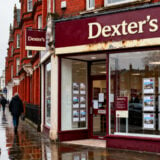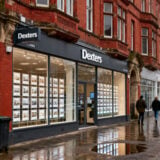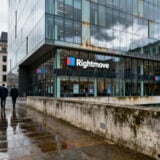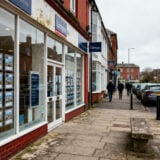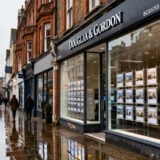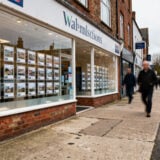The sales sector across the Grade A office, luxury residential, industrial and retail markets has been stimulated by the inflow of ample liquidity into Hong Kong, reflected by the significant rise in the sales activity. However, the leasing sector in the four markets remained on the downside since occupational demand was weak in the midst of the ongoing global and Hong Kong economic slowdown. These findings were analysed in the Hong Kong Knowledge Report – July 2009, the quarterly report covering Grade A office, luxury residential, industrial and retail markets in Hong Kong.
Grade A Office
With the high level of liquidity in 2Q 2009, investment sentiment was buoyant in the property market and a number of private investors were bold in acquiring office properties. Since there was limited whole-block stock available for sale, sales activity focused on the strata-title office units in 2Q 2009. This has driven up prices. For example, average asking prices for strata-title office buildings in Admiralty rose to HK$10,000-HK$13,000 or above per sq ft in 2Q 2009, compared to the HK$8,000-HK$9,000 per sq ft in the previous quarter.
However, office rentals were yet to see the positive spillover from the resilient sales market, with the average Grade A office rentals falling further by 12.1% quarter-on-quarter (QoQ) to HK$41.79 per sq ft per month as at the end of May 2009.
The average vacancy rate across the various business districts increased slightly from 7.43% in February to 7.86% in 2Q 2009.
"Owing to the sustained trend of corporate relocations to the less expensive offices, Kowloon East was one of the very few sub-markets to register a fall in vacancy rates during 2Q 2009," said Simon Lo, Director of Research & Advisory. One of the benchmark examples is the relocation of the office of Manulife from Causeway Bay to Kwun Tong, which will take up 247,000 sq ft in Kwun Tong 223. Meanwhile, Central and Admiralty also registered a marginal drop of vacancy rate from 5.07% in 1Q2009 to 4.90% in 2Q2009.
Looking forward, new demand will remain weak while existing tenants are expected to look at every possible option to reduce costs. In the next twelve months, Grade A office rentals are projected to fall 15% unless the worldwide economic recovery is quicker than expected.
Luxury Residential
In 2Q 2009, there was a distinct growth in sales volume and prices in the luxury residential market. The number of sales transactions in The Peak, Mid-levels and South Side increased over 100% during the period, while the average luxury residential price surged by 21.9% QoQ to HK$12,955 per sq ft as of May 2009. Particularly, the average luxury residential price growth in South Side outperformed those in The Peak and Mid-levels, which registered a significant increase of 33.5% QoQ to HK$14,413 per sq ft in May 2009.
"In addition to the inflow of liquidity, the strong buying interest could be attributed to the growing optimism in the marketplace, driven partially by the significant rebound in stock market prices," said Simon. "Looking forward, luxury residential prices are expected to see stable growth to edge up 5% or above in the next twelve months."
In contrast, luxury residential rentals fell by 4.3% QoQ and the average serviced apartment rentals dropped by 7.8% QoQ as of May 2009. This could be explained by the uninspiring hiring expectations by multinational corporations which weakened the occupational demand for luxury units and serviced apartments. In the next twelve month, luxury residential rentals are expected to see a downward adjustment of 3%.
Industrial
The number of sales transactions of industrial property rose 129% QoQ from 393 in March 2009, the lowest level since 1999, to 900 in May 2009. Of the industrial districts, Kwai Chung/Tsuen Wan and Kowloon East saw the most active sales activity during the period.
However, the leasing market remained subdued in terms of demand and rental. This could be attributed to the ongoing global recession and the plunge in intra-regional trade. The total value of re-exports fell 17.1% year-on-year (YoY) to HK$565 billion during the three-month period ended in May 2009. The gloomy external trade environment challenges the business outlook for trading and logistics companies, which are the major occupiers of Hong Kong's industrial properties.
Although individual warehouse users have taken advantage of the prevailing market downturn to upgrade their premises to prime quality warehouse in Kwai Chung with rentals staying similar to what they paid in other districts, most occupiers remained cautious about their rental expenses. "New leasing demand was rare, while existing tenants tried to cut down their rental costs by downsizing or relocating to less expensive premises," mentioned Simon.
Although the pace of downward adjustment of Hong Kong's external trade is expected to taper off, industrial property occupants will remain conservative in coping with the uncertainties in the external environment. Industrial rentals are predicted to fall by 5% – 15% over the next twelve months.
Retail
In 2Q 2009, locals' spending sentiment was negatively affected by the contracting economy and uncertain job market. Meanwhile, visitor arrivals in Hong Kong dropped 3.5% YoY during the three-month period ended in May 2009. These have dampened Hong Kong's retail sales, which recorded a single-digit fall in both April and May 2009 compared to the same period last year.
"Seeing the challenges in Hong Kong's retail market, some local and international retailers became more cautious and chose to put their expansion plans on hold," said Simon. "Meanwhile, the retail property market was increasingly segmented. Although individual retailers are willing to pay premium rentals for prime units in traditional shopping districts, there were still vacant shops near those prime units, even in the same street segment."
Average retail rentals in the four traditional shopping districts – Central, Causeway Bay, Mong Kok and Tsim Sha Tsui – registered a decrease of 4.7% QoQ in 2Q 2009. Of the four districts, Central saw the smallest decline of 3.6% QoQ during the same period.
Looking forward, Hong Kong's retail sales still face a number of challenges, such as the slowdown in the number of inbound visitors and cautious spending by local households. As a result, retail rentals are projected to drop further by 12% in the next twelve months.
